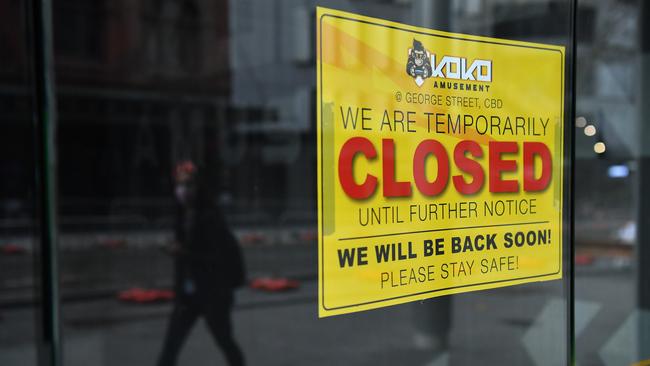Future lockdowns should be ‘rejected out of hand’, new international report says
Study finds lockdowns have had little to no effect on reducing Covid-19 deaths, with their benefits ‘marginal at best’ compared to their ‘devastating effects’.

Lockdowns have “had little to no effect on” reducing deaths from Covid-19 and should be “rejected out of hand” for dealing with the next pandemic, according to a new international study that comes amid falling confidence in public health authorities in the US.
Business closures and stay at home orders in the US and Europe reduced deaths by 0.2 per cent on average, according to a new analysis by American and Swedish researchers that questioned whether the novel health policy, pioneered by China in Wuhan in early 2020, would pass a cost-benefit analysis.
“Lockdowns have not been used to such a large extent during any of the pandemics of the past century,” the authors said, suggesting their “marginal at best” benefits needed to be compared with their “devastating effects”.
“They have contributed to reducing economic activity, raising unemployment, reducing schooling, causing political unrest, contributing to domestic violence, and undermining liberal democracy.”
The study, conducted by Steve Hanke, a founder of the Johns Hopkins School of Applied Economics, Jonas Herby and Lars Jonung, a Swedish economist, comes amid debate over the effectiveness of mandates in “slowing the spread” of Covid-19 as the pandemic enters its third year and cases and hospitalisations from surge to new highs.
Americans’ confidence in public health authorities has fallen during the pandemic, from 55 per cent in 2020 to 44 per cent, according to a national NBC poll conducted earlier this month. Forty-three per cent specifically said they did not trust the Centre for Disease Control’s recommendations.
Governments imposed lockdowns of various severity and duration, including seven in Victoria totalling more than 260 days, from March 2020 onwards, after British epidemiologist Neil Ferguson, who was advising the UK government, forecast that lockdowns would reduce deaths by “up to 98 per cent”.
Pandemic plans published prior to Covid-19 had either advised specifically against lockdowns, which until now had been a fringe, untried “nuclear option”.
Difficulties in enforcement, voluntary social distancing, and unintended consequences, such as confining infected and uninfected people together at home and stopping socialising at safe, outdoor areas such as parks and beaches, may have worked against the effectiveness of lockdowns, the study suggested.
“Countries like Denmark, Finland, and Norway that realised success in keeping Covid-19 mortality rates relatively low allowed people to go to work, use public transport, and meet privately at home during the first lockdown,” they said.
“Island nations are birds of a different feather in more ways than one. In addition to Australia and New Zealand, Iceland, Japan, South Korea (a de facto island), Singapore and Taiwan have had very few Covid deaths. But some of them had very mild lockdowns, too.
“And let’s not forget the UK. It’s had one lockdown after another and relatively high rates of mortality, too.”
Proponents of the radical policies have struggled to explain how jurisdictions that imposed no or few lockdowns, such as Scandinavian nations, Japan, or southern states of the US, have ended up with Covid-19 outcomes not greatly different or even better than other jurisdictions.

The lockdown study, a “meta-analysis” that aggregated the findings of other studies, whittled down 117 empirical analyses of lockdowns published before July 2020 to 34, discarding any that used computer modelling to predict counterfactuals.
Lockdowns were defined as any mandatory policy that reduced movement or mandated masks. “Shelter in place orders”, a subcategory, reduced deaths by 2.9 per cent, it found.
A separate survey found three quarters of American adults said they were “tired and frustrated” with the pandemic while 77 per cent said it was inevitable people would catch Covid-19, according to the Kaiser Family Foundation.
The UK and Denmark have dumped all Covid-19 restrictions, while major US cities have introduced new vaccine passports and extended mask mandates indefinitely.
President Joe Biden recently ruled out a return to lockdowns as daily deaths from Covid-19, which have increased to more than 2,500 during the current Omicron wave, surpass earlier peaks.








To join the conversation, please log in. Don't have an account? Register
Join the conversation, you are commenting as Logout